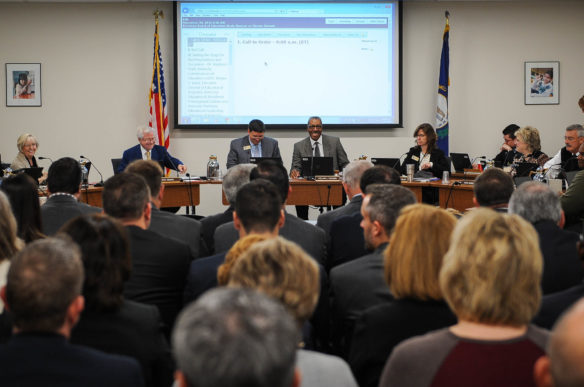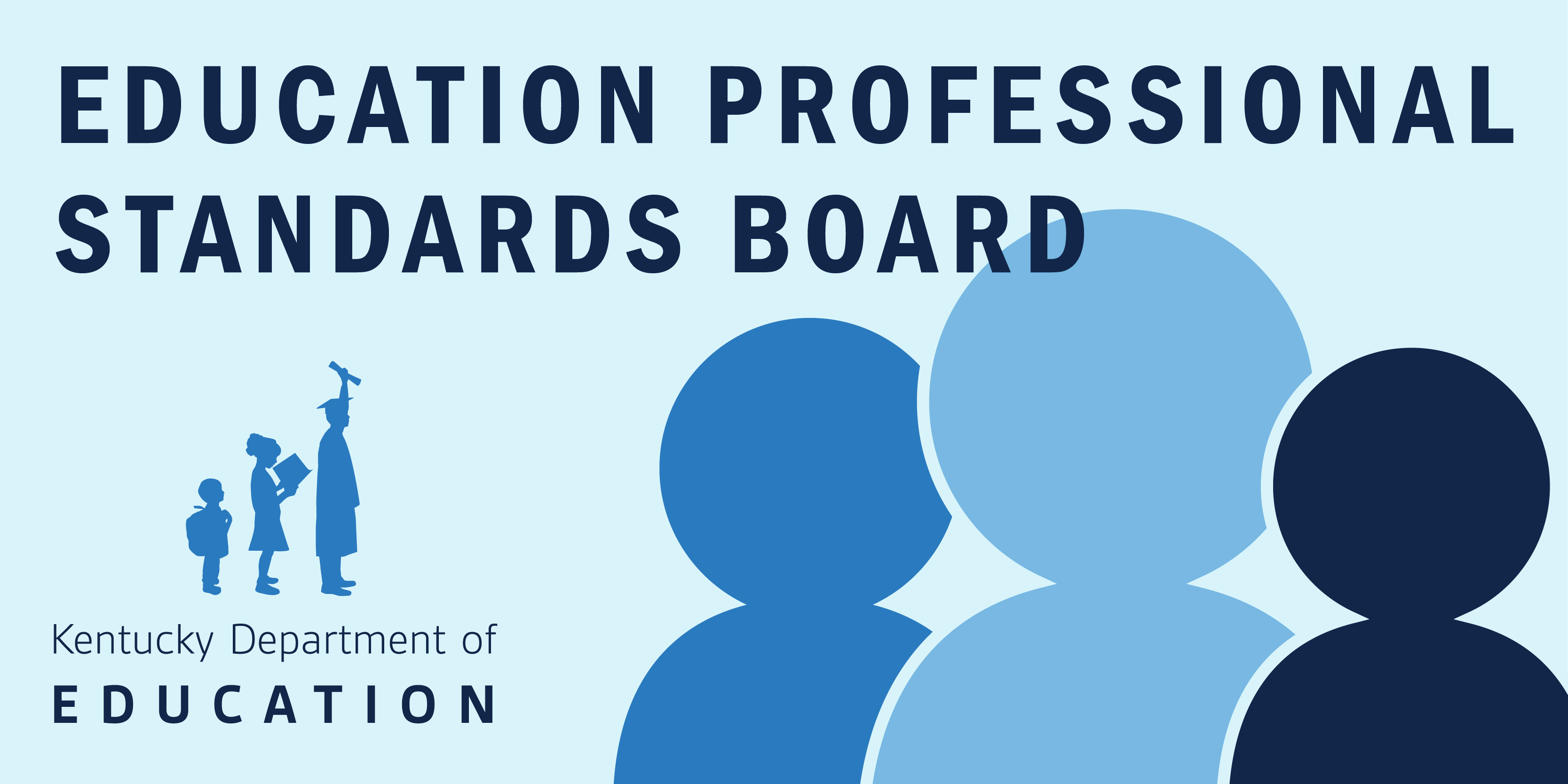
Members of the Kentucky Board of Education welcome members of the public before the start of a special meeting meant to gather information on charter schools.
Photo by Bobby Ellis, Nov. 28, 2016
(FRANKFORT, Ky.) – The Kentucky Board of Education heard a lot about charter schools during a special study session on the topic today in Frankfort. An overflow crowd, including many local district superintendents attended. The board did not take any action.
Currently, 43 states and the District of Columbia have laws allowing public charter schools. Kentucky does not. Charters differ from other public schools in that the authorizer and charter operator enter into a performance-based contract, or charter, that spells out the school’s governance, funding, accountability and flexibility, among other things.
During the session, the board learned that great variation exists among public charter school laws including:
- the chartering authorizer (local board of education, state board of education, chief state school officer, higher education institutions, nonprofits, independent charter boards, municipal governments);
- the number of charters allowed and their location;
- the type of charter schools allowed (start-up, public school conversion or virtual school);
- who can hold a charter (a nonprofit charter management organization – CMO; a for-profit education management organization – EMO; or another entity);
- how long the charter is valid and the renewal or revocation terms; and
- the funding formula (per pupil, a percentage of state and local funding, grants, special funding, private donations).
A representative from the Education Commission of the States presented an overview of charters nationwide, and the Prichard Committee for Academic Excellence presented highlights from its report Exploring Charter Schools in Kentucky.
Margaret Raymond from the Center for Research on Education Outcomes (CREDO) at Stanford University presented a major research study on charter schools. While outcomes differed from state to state and city to city, the study concluded that:
- based on academic growth on tests, charter schools best serve black students, English learners and students living in poverty;
- charter schools that typically work well are in urban areas, have strong human capital systems, a blend of new school culture and focused instruction, and the opportunity for knowledge transfer; and
- charter school quality is set early in the operating life of the school and is controlled and driven by the authorizing entity.
Joseph Waddington, an assistant professor in the Educational Policy Studies & Evaluation area at the University of Kentucky, told the board about a number of other studies that looked at charter schools and how they performed.
“Charters could be one tool in the utility belt,” Commissioner of Education Stephen Pruitt said, “but no one thing is going to address our achievement gap, unless maybe every single person in the Commonwealth decided, ‘This is my problem’ – we could wipe out achievement gaps, we could wipe out low-performing schools, but that is going to be a hard lift.”
The board did spend some time discussing the pros and cons of who should authorize charter schools and whether there should be multiple authorizers, if Kentucky allows charters.
Ultimately, the board directed the commissioner to provide additional information on successful charter schools, how they are chartered, various providers who run them, the flexibility they have, how they are funded and how successful they are at closing the achievement gap. Also, the board asked for a draft policy on charter schools that it could consider for Kentucky at its next meeting.
The board’s next regular meeting is Dec. 7, at which time members are expected to make a decision on whether to add charter schools to the board’s legislative agenda.
Supporting materials used during the study session are available on the board’s web portal here.



This presentation was particularly one sided in favor of charter schools, relying on almost entirely positive data. Was there any discussion to the opportunities for fraud and graft that are inherent to a system that funnels tax dollars into private entities’ pockets? Was any mention made to the many instances of teacher abuse and burn out that occur throughout the country? Did you have anyone represent the students that are denied access to charter schools due to disabilities? Was there any discussion to the rigid emphasis on testing in so many charter schools?
I was unable to watch the actual board meeting because it was broadcast during the time in which I have to teach.